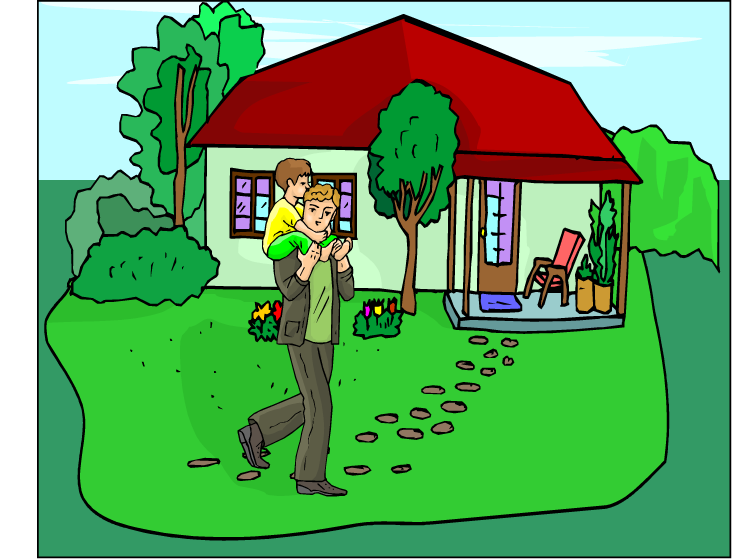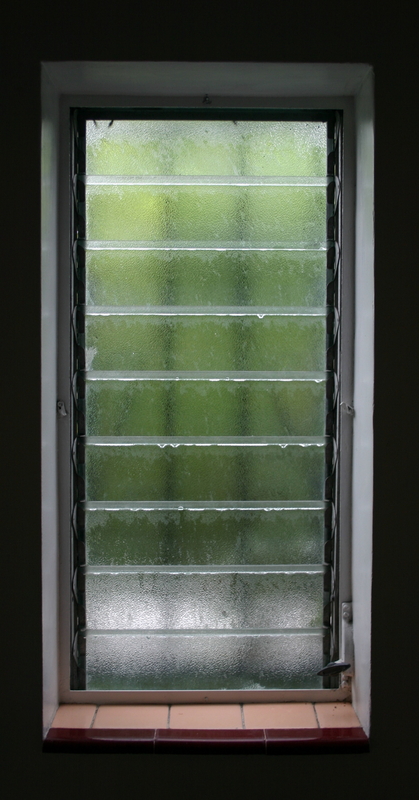Pieter's Misunderstanding
 April 21, 2009
April 21, 2009
When your parents love you,
it is easy to be filial.
When your parents are upset with you,
being filial means you have a noble heart.

When our parents care for and are happy with us, it is easy for us to naturally return their love and to be good. It is like giggling or laughing. When others laugh, we often end up laughing along with them. And we all know what happens when someone starts giggling. Loving our parents when they love us is as natural, and as easy.
But what if they are upset over something, maybe something we did. We might get upset ourselves or we might cry. Or we might be so hurt that we do what Pieter did …
The winter had been long but spring finally arrived. Pieter could now run to greet his father at the front gate when he returned from work. Every evening, his father would swing Pieter up on his shoulders and grasp Pieter’s ankles as he held tight to his father’s neck. Together they would go to the front porch where Pieter's father would sit in his chair. Pieter would sit on his father’s lap and tell him all about his day.
But one day when his father came home, he looked very unhappy. When Pieter tugged at his hand and asked to be picked up, his father said “Go away, can’t you see I’m thinking!”
Stung by his father’s words and feeling dejected, Pieter decided he would do just that. He’d go away. After his father walked into the house, Pieter turned and ran out the front gate.
He ran as far as he could and then slowed to a walk. Soon he came to the village. He was so tired that he had to sit down on the curb. Then he realized he was also hungry and cold. And worse, he began to think about his father who must be frantic about him. Pieter felt he needed to go home so his father wouldn’t worry.
The next moment, Pieter saw a pair of shoes standing in front of him. They were not just any shoes. They were the ones the village policemen wore. A question floated down to him, “Son, are you okay? Are you waiting for someone?” Pieter looked up and saw a policeman with a kind face and nice smile.
Pieter stood up and shyly admitted that he had run away from home. The policeman scrunched down to Pieter’s level and said, “You know, when I was about your age I did the same thing. My parents had said something that hurt my feelings. It so surprised me that I found myself running away. And it was getting dark, and I was getting scared. Plus, I had no money and nowhere to go. Yup, I remember it clearly.”
Pieter said in amazement, “Wow! Just like me! Dad told me to go away.”
The policeman nodded and said, “I bet that surprised you.”
Pieter mumbled, “Yes.”
“You know, after I ran away, “I felt scared and wanted to go home. Are you, by any chance, thinking you’d like to go home?” the policeman asked with a reassuring smile.
Pieter said “Yes” again, this time with a smile the policeman asked Pieter where he lived and Pieter told him. He replied, “I know where that is. I just moved close to there with my wife and little girl. Would you like me to take you home?”
Pieter nodded enthusiastically.
The policeman swung Pieter up onto his shoulders and while holding firmly to Pieter’s ankles, told him to put his arms around his neck. Pieter did as he was told.
After about ten or so steps, he heard Pieter begin to cry. He quickly put Pieter down and scrunched down again. He asked Pieter why he was crying.
Pieter said his father carried him the same way every day when he came home from work. The policeman smiled and said, “It sounds like you have a really good daddy. After working all day, the first thing he does when he comes home is to carry you proudly on his shoulders. You know, your dad probably had a really tough day today and was just feeling bad. And I’m sure he didn’t really mean it when he told you to go away.”
Pieter agreed, “Yes! He is a really good dad. But today he did look tired and now I made things even worse for him.”
The policeman chuckled and said, “Well, that’s it then. You and your dad just had a misunderstanding.” And with that, he again swung Pieter up on his shoulders and began walking jauntily down the road where he quickly came to the lane Pieter lived on. Pieter pointed out his house and as the two approached the gate, Pieter's father came running to them.
The policeman put Pieter down. He ran to his father who scooped him up, saying “Pieter! Where have you been? I cooked dinner but then I couldn’t find you. I’ve been so worried.”
He then looked questioningly at the policeman who winked and nodded in the direction of the village. He said, “Pieter has been showing me around. My family and I just moved here.”
Pieter’s father quickly understood and said, “Ah, it’s very nice that you’ve been talking to our new policeman. But Pieter, you do know that you can talk to me anytime, right? Even when I’m tired or upset?” Pieter beamed at his father and nodded.
They thanked the policeman, who began whistling as he turned to walk back to the village. Then Pieter’s father put Pieter on his shoulders and held on to his ankles as Pieter clung to his father’s neck. Together they went in to dinner.

